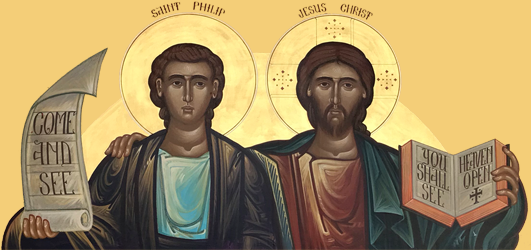“But you shall seek the place the Lord your God chooses, out of all your tribes, to put His name and to be called there; and you shall go and seek Him there.” (OSB)
Moses speaks here in Deuteronomy 12 of what may be termed the “centralization” of worship in Israel. Looking ahead to after Israel conquers and settles the land, Moses tells the people that there will be only one acceptable place in which sacrifice to and worship of God can happen—that is, where God chooses to “set His Name.” This is due, in part, to the fact that the Israelites will not be altogether successful in their conquest of Canaan, and thus remnants of pagan Ba’al worship will remain in the land threatening to corrupt the true worship of God if Israelites are allowed to worship “privately,” independently from Jerusalem as the “Mother Church,” as it were. In this way, this passage is actually a prophecy of the apostasy of Israel, who will do exactly what they were told not to do, and thus find themselves worshipping the false gods of the nations and eventually in exile because of it.
Positively, however, this is also a prophecy of both the construction of the Temple in Jerusalem (“Zion”) and the preeminence of the Tribe of Judah (as seen already in Gen 49:10-12 and Exod 15:17-18), with David as Judah King and Solomon as Temple Builder being the focal point of both of these realites, all of which prefigure Christ. The “election” of Zion is at the same time the “election” of the Davidic King, for as the Psalmist says, “I was established as King by Him on Zion His holy mountain, declaring the Lord’s decree: the Lord said to Me, ‘You are my Son, today I have begotten You’” (Ps 2:6-7).
For the ancient Israelite, Zion was not just a sacred place where God had taken up residence, it was nothing less than the center of the world, precisely because heaven and earth met at the Jerusalem Temple. Zion was the new Garden of Eden, and the Davidic King was the New Adam, who through his own person and reign was reclaiming all of creation back to its original pattern, restoring the royal-priestly function of humanity made in God’s Image. Jerusalem was thus the focus of the future hope for all the nations and all creation: “Now it shall come to pass in the last days, the mountain of the Lord and the house of God shall be visible on the tops of the mountains and exalted above all the hills. All the Gentiles shall come to it … For the law of the Lord shall go forth from Zion, and the word of the Lord from Jerusalem” (Isa 2:2-3).
In the words of a contemporary writer, “In the free election of Zion as an act of divine condescension lie the essence and the specifics of all Zion-theology, all Davidic theology, and finally, of the whole biblical theology of incarnation” (Othmar Keel, The Symbolism of the Biblical World, 120). That is, the theology of Zion in the Old Testament foreshadows the “scandal” of the Incarnation—that the God of the universe would become incarnate in a particular time, place, Person, and by means of a particular human person, the Virgin Mary. The “scandal” of the Incarnation continues in the life of the Church as we bear witness in our particular lives and parishes to the Kingdom of God, and find our identity, calling, and home in the Jerusalem above, the heavenly Zion (Heb 12:18-24; Gal 4:21-31).

